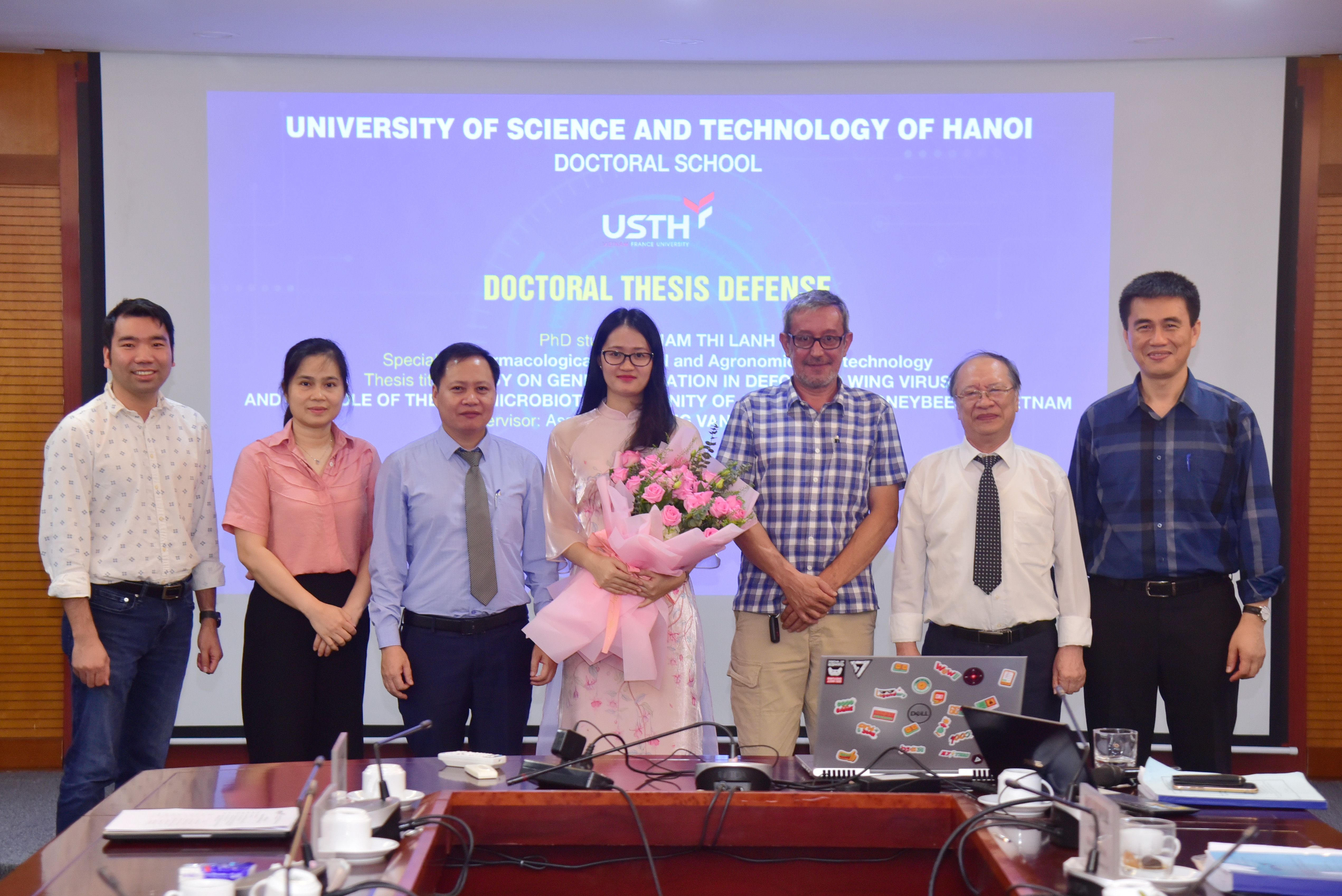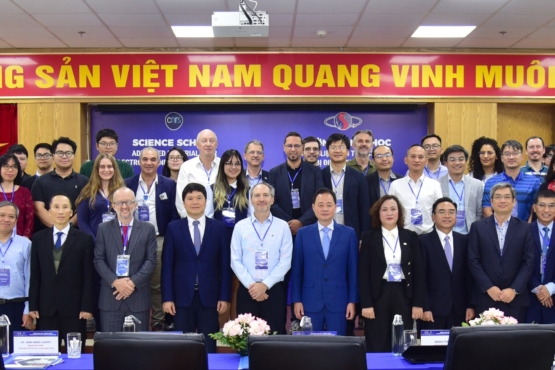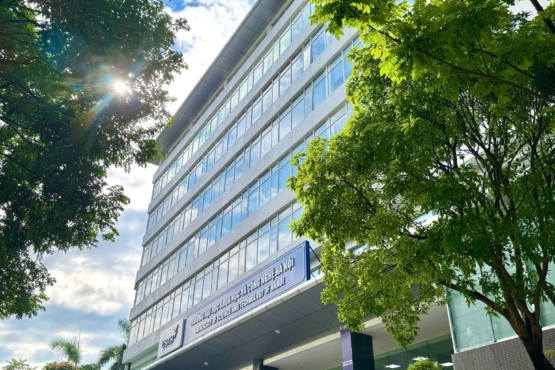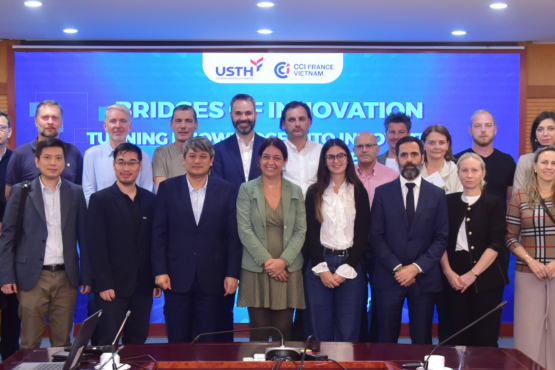On May 2, 2024, University of Science and Technology of Hanoi (USTH) held a doctoral thesis defense for PhD student Pham Thi Lanh, majoring in Pharmacological, Medical and Agronomical Biotechnology with the thesis title: “Study on genetic variation in deformed wing virus and the role of the gut microbiota in immunity of Apis cerana honeybees in Vietnam.”
The doctoral thesis was under the supervision of Assoc. Prof. Dong Van Quyen, Department of Life Sciences.
The PhD thesis defense was attended by 5 members of the thesis Jury, including:
- Assoc. Prof. Eric Lacombe, USTH, Chairman
- Assoc. Prof. Tran Van Tuan, Hanoi University of Science, VNU, Reviewer
- Assoc. Prof. Nguyen Thuy Duong, Institute of Genome Research, Vietnam Academy of Science and Technology, Reviewer
- Assoc. Prof. Dinh Duy Khang, Institute of Biotechnology, Vietnam Academy of Science and Technology, Member
- Dr. Nguyen Quang Huy, USTH, Member, Secretary
At the defense, PhD student Pham Thi Lanh presented the research results of her thesis to the Jury.
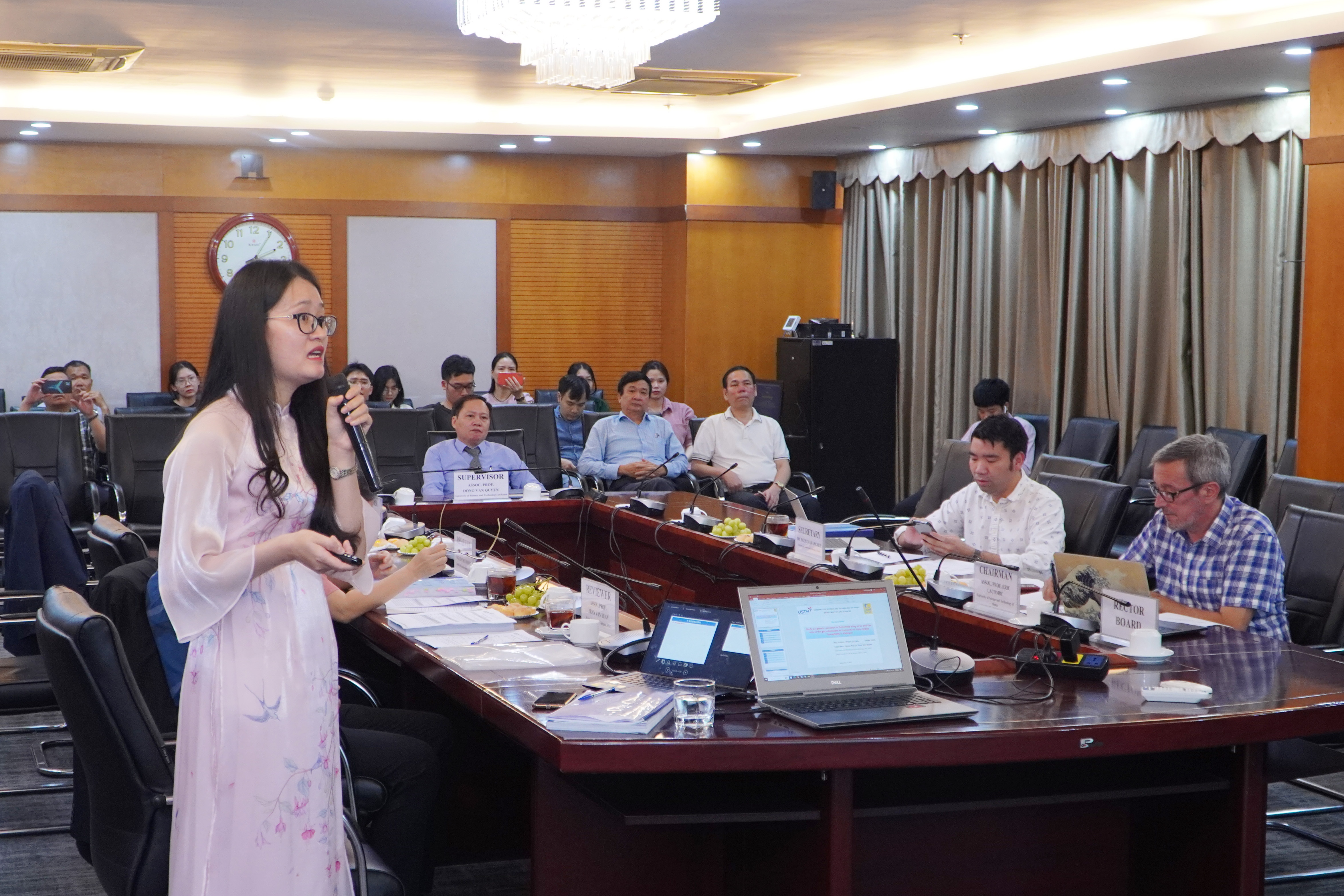
According to Ph.D. student Pham Thi Lanh, the Asian honeybee, Apis cerana, holds significant economic importance as a crucial insect and serves as a valuable pollinator for crops in various Asian countries, including Vietnam. Recently, the Deformed wing virus (DWV), undergoing a global epidemic, is responsible for the mortality of individual honeybees and the collapse of entire colonies, posing a substantial threat to food security and ecosystem stability.
Therefore, in-depth research on the genetic changes of this virus in honeybees in Vietnam is necessary for an effective disease prevention strategy. Furthermore, increasing evidence shows that the bacteria in the bee’s intestines play an essential role in improving the health of honeybees, increasing their resistance to a diversity of diseases. Thus, a comprehensive understanding of gut bacteria composition in honeybees can provide the scientific basis for developing biological products for beekeeping to enhance honeybee health.
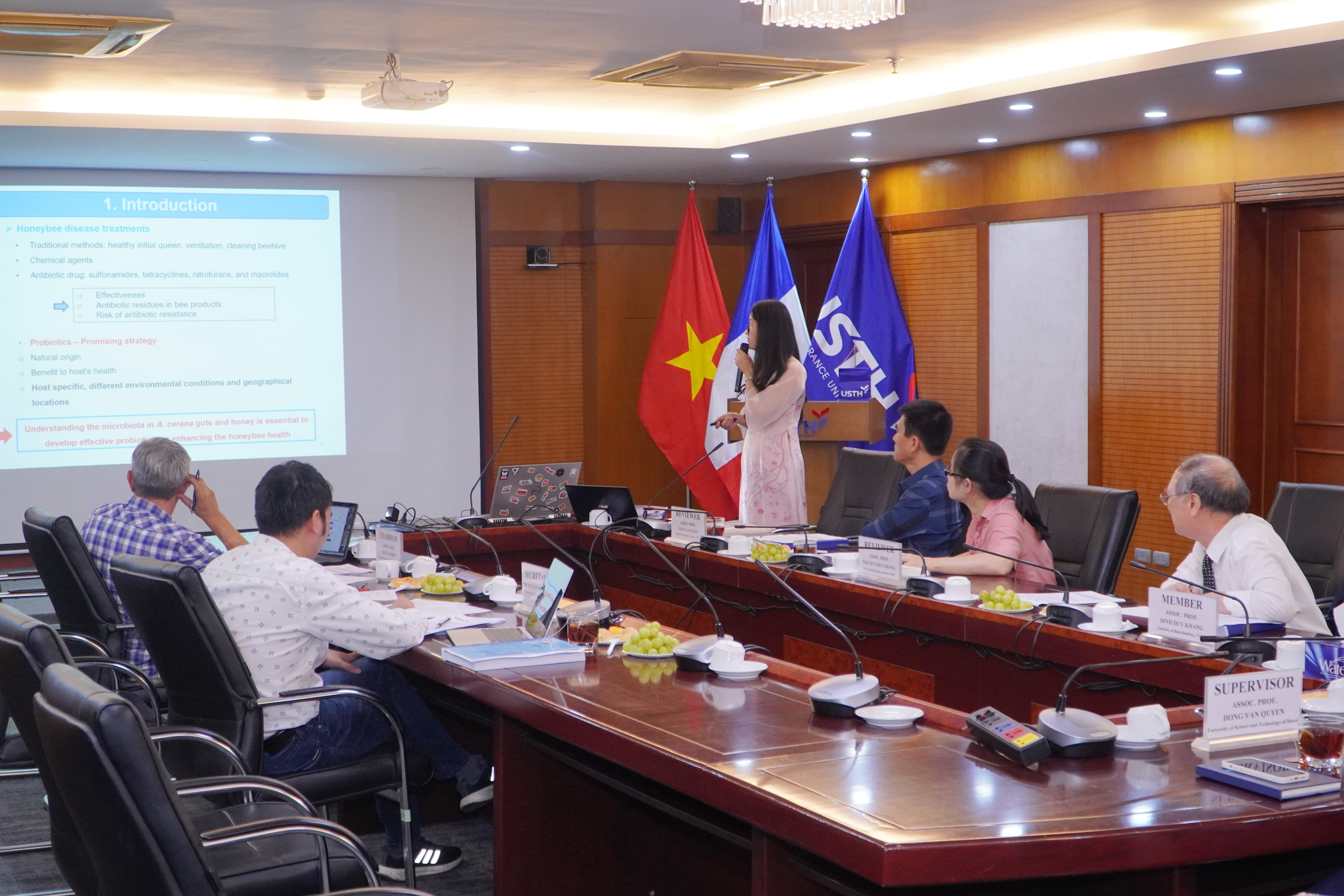
In the present study, the complete genome sequences of two DWV strains isolated from A. cerana in Vietnam (MN607197 and MN607198) were reported for the first time, revealing numerous substitutions in key protein sequences, particularly in the L, VP3, and RdRp proteins responsible for virus infection and their pathogenicity. Phylogenetically, DWV infected A. cerena in Vietnam belonged to DWV type A.
The obtained results provided scientific information for the diagnosis, molecular epidemiology, classification, and adaptations of DWV strains infecting A. cerana in Vietnam. Moreover, by the application of the next-generation sequencing (NGS) technique, the investigated bacterial communities in A. cerana honeybees and their products in this study offered an overview picture of microbiomes associated with the A. cerana honeybees in Vietnam. In which, the gut microbiota of healthy adult A. cerana were dominant by four phyla, including Proteobacteria (70.7%), Actinobacteria (10.7%), Firmicutes (10.3%), and Bacteroidetes (8,3%). However, the structure of gut microbiota varied over the developmental stages of A. cenara.
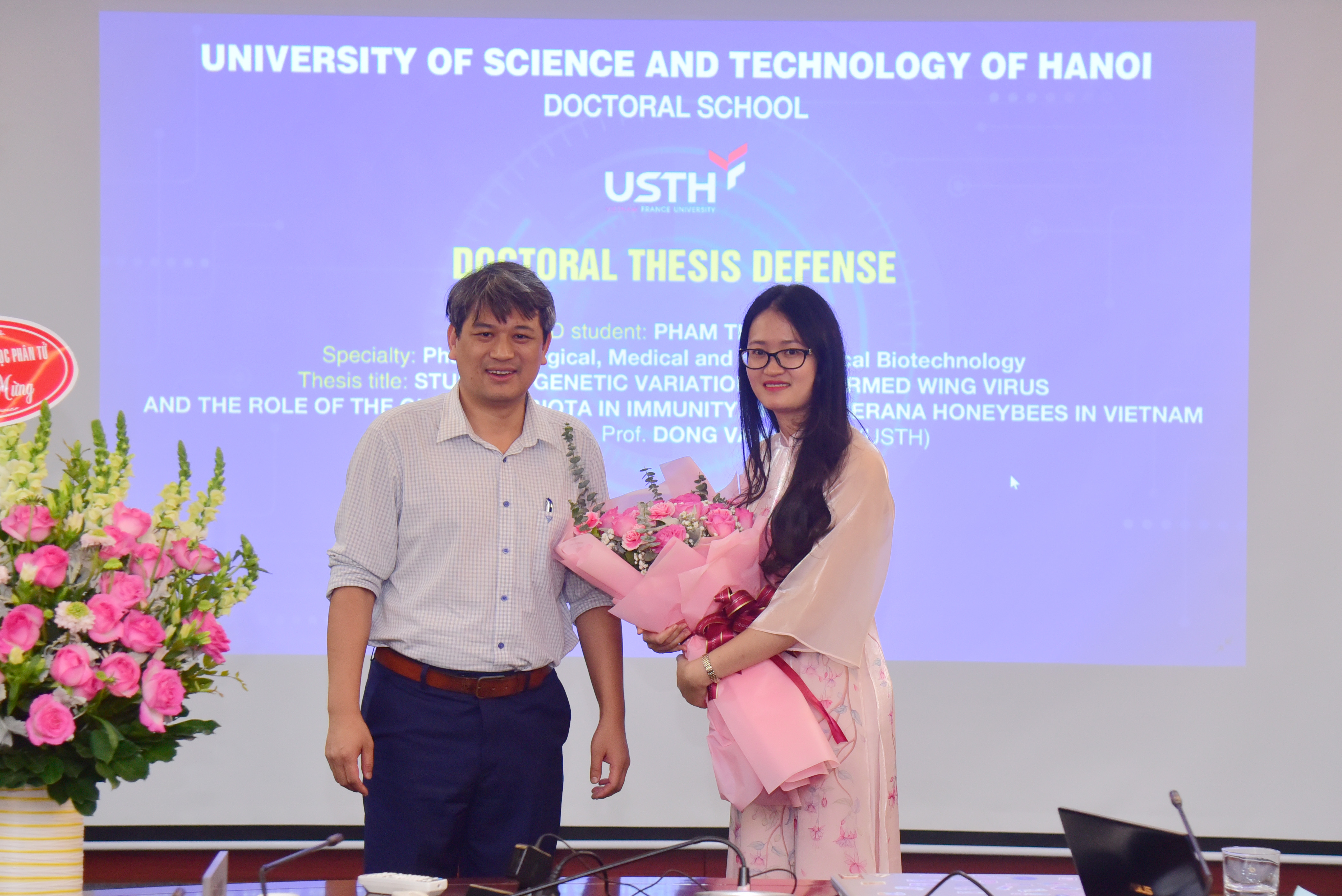
In larvae, Firmicutes were the most predominant (81.6%); they decreased significantly along with the bee development (33.7% in pupae and 10.3% in adults) in favor of Proteobacteria. Besides, the gut microbiota greatly changed in DWV-infected honeybees compared to the healthy honeybees, with a significant decrease of core bacteria in the genus Gilliamella and a considerable increase in the abundance of Lactobacillus. Additionally, there were numerous beneficial bacteria found in A. cerana honey, such as Lachnospiraceae and Lactobacillus spp. These data established the scientific basis for developing effective strategies to sustain the health status of honeybee colonies in the face of threats.
Finally, the beneficial bacteria isolated from A. cerana honeybees and honey not only yielded valuable genetic materials but also presented promising candidates for the development of biological products aimed at enhancing the health of honeybees, such as Lactobacillus kunkeei, Lactobacillus plantarum, Leuconostoc mesenteroids, Leuconostoc citreum, Pediococcus pentosaceus and Bacillus subtilis. The in vitro assay indicated that these isolated strains exhibited strong antimicrobial activity against pathogenic bacteria in honeybees and humans, including Klebsiella spp., Escherichia coli, Enterococcus faecalis, Pseudomonas aeruginosa, and Staphylococcus aureus.
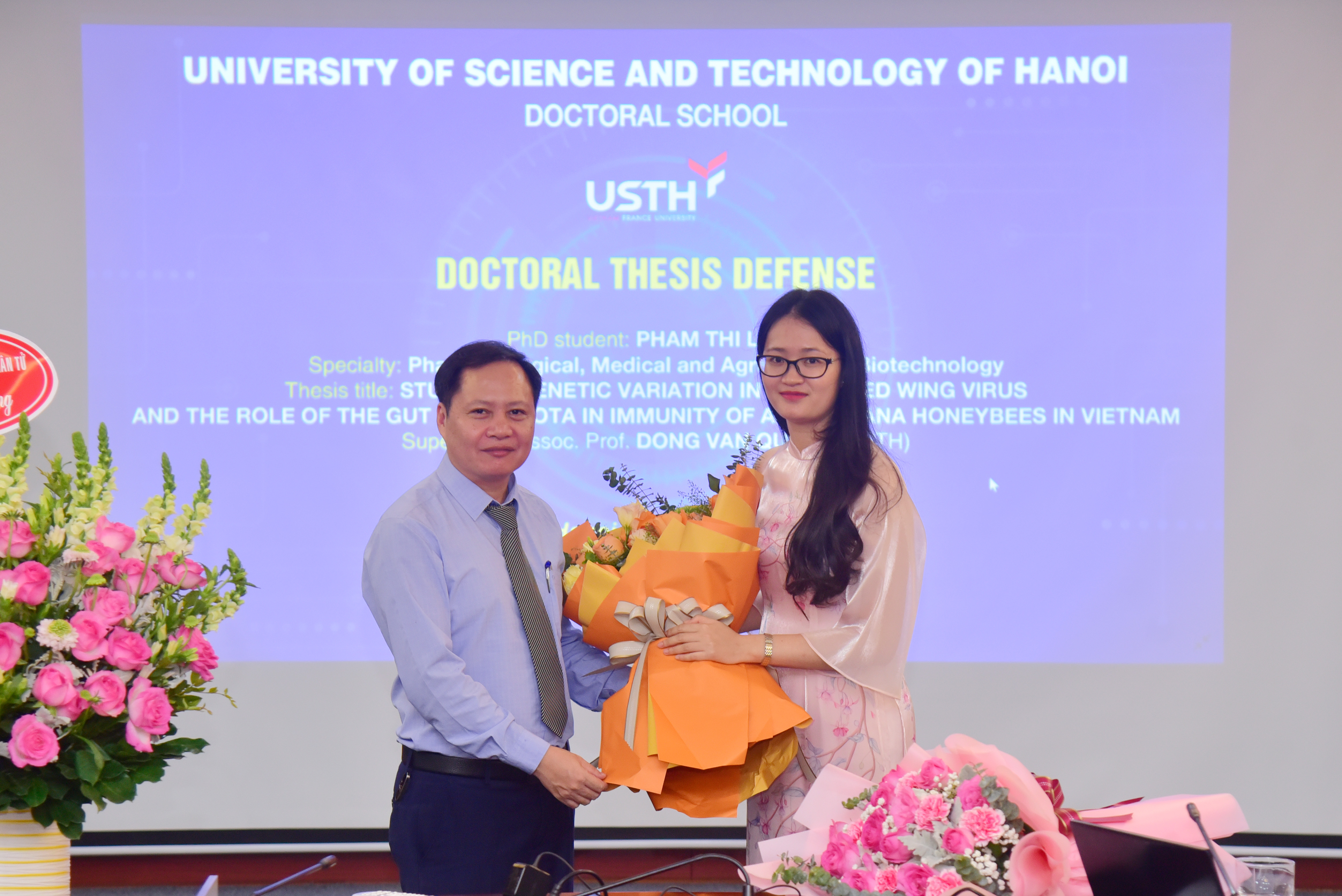
In conclusion, her findings provide fundamental insights for developing effective methodsto detect and control DWV infection, as well as probiotics to maintain and improve the health of A. cerana populations, thereby minimizing the use of antibiotics in beekeeping and contributing to the sustainable development of beekeeping in Vietnam.
The Jury highly praised Ph.D student Pham Thi Lanh ‘s research outcomes, recognizing them as meaningful work, contributing to developing strategies for protecting the A. cerana– a native species that plays an important role in Vietnamese agriculture, against threats from diseases and habitat degradation. They discussed in a closed session and voted, resulting in 5/5 votes in favor.
Ph.D candidate Pham Thi Lanh expressed her heartfelt thanks to Assoc. Prof. Dong Van Quyen for his dedicated supervision, to the lecturers/staff at USTH for their support, and to her family, friends, and colleagues for their constant encouragement throughout her research journey. Their support was a great motivation for her to complete her thesis defense.
On behalf of the Jury, Assoc. Prof. Eric Lacombe extended his congratulations to Ph.D student Pham Thi Lanh for successfully defending her doctoral thesis. He also wished her great success in her future endeavors and career.
